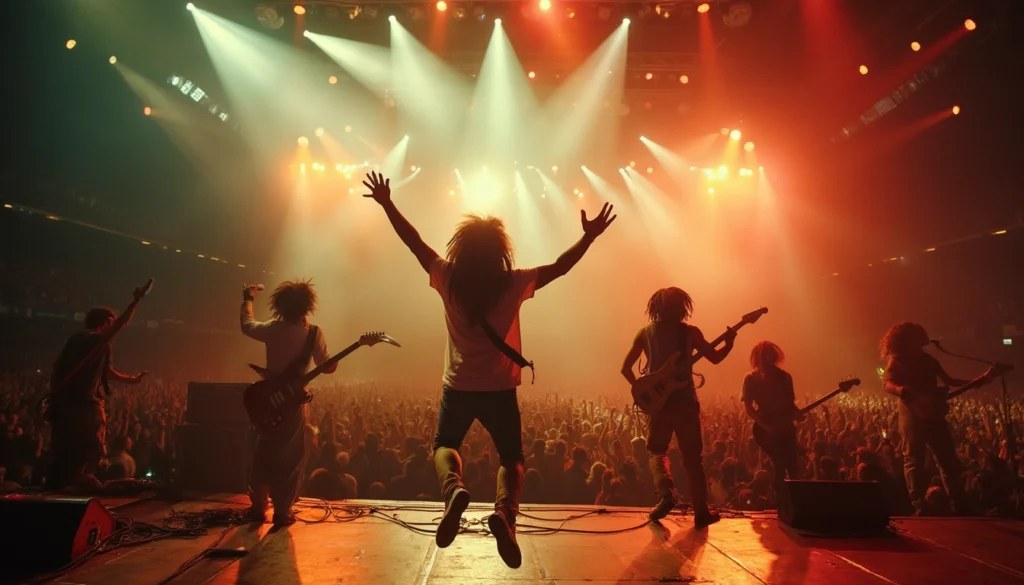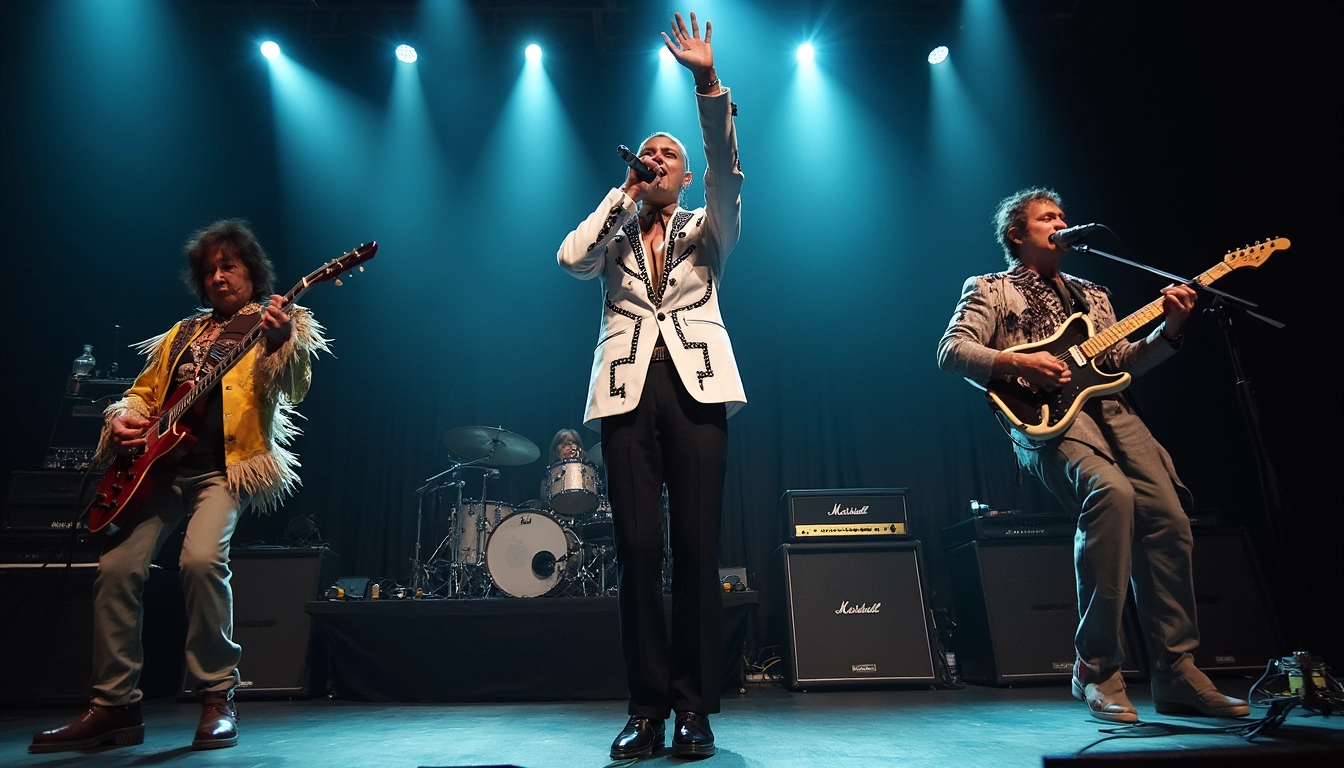Pricing concert tickets isn’t just a matter of picking a number—it’s a critical strategy that directly impacts your event’s success. The price of a ticket not only determines how many people attend but also reflects the perceived value of your event. If prices are too high, you risk deterring potential attendees. On the other hand, prices that are too low can leave money on the table and may even harm the perception of your event’s quality.
A successful ticket pricing strategy requires a mix of data analysis, audience insights, and creative flexibility. From understanding your audience’s spending habits to creating tiered pricing structures, setting the right ticket price is not a matter of guessing. In this article, we’ll walk you through the essential steps for pricing concert tickets effectively. You’ll learn how to balance affordability with profitability, optimize revenue, and create a memorable experience for your fans.
Understand Your Audience and Their Willingness to Pay

Knowing your audience is the cornerstone of setting the right ticket price—understand what they value and how much they’re willing to spend.
Research Demographics and Income Levels
The demographics of your audience—such as age, income level, and geographic location—play a significant role in determining their willingness to pay for concert tickets. Younger audiences, like students or early-career professionals, often have limited disposable income and may prefer affordability over premium experiences. Meanwhile, older audiences or high-income professionals are generally more willing to pay for added perks, such as comfortable seating, better views or even a premium experience.
For instance, if you’re organizing a hip-hop concert targeting 18-25-year-olds, keeping prices lower can help you attract a larger crowd. However, if you’re hosting a jazz concert aimed at a more affluent, older demographic, you might charge $100-$200 for premium seating to align with their spending habits. Understanding these differences ensures that your ticket pricing strategy aligns with your audience’s financial capabilities and expectations.
Conduct Competitor Analysis
Analyzing your competitors’ ticket pricing isn’t just about copying their rates—it’s about understanding how their offerings compare to yours and how pricing influences demand. Start by researching concerts in your area with similar genres, artists, or venues. Note the price ranges for general admission, premium seating, and any add-ons like VIP experiences or merchandise bundles. Competitor pricing provides a valuable baseline, helping you understand where your event fits in the market.
For example, if you’re hosting an indie music event and notice that competing concerts in the same genre sell out at $50 per ticket, you can price your event similarly or slightly lower to attract cost-sensitive buyers. Alternatively, if your event offers added value, such as exclusive meet-and-greets, you might price higher and justify it with premium perks. Competitor analysis allows you to strategically position your event within the local market while ensuring your pricing is competitive.
Survey Your Fans Directly
Direct feedback from your audience can provide the clearest insight into their pricing preferences and expectations. Surveys are a cost-effective way to gather input about price ranges, preferred perks, and interest in premium packages. Use social media, email campaigns, or event apps to distribute surveys, asking fans what they’d be willing to pay for general admission, VIP access, or bundled offers.
For instance, if you find that 70% of respondents are excited about VIP perks like backstage access but only 30% can afford $200 tickets, you might introduce a mid-tier package at $150 with fewer perks. This approach allows you to cater to demand without pricing out a significant portion of your audience. By aligning ticket prices with fan expectations, you maximize sales across multiple tiers while enhancing audience satisfaction.
Want to ensure your ticket prices match audience expectations? Discover how market segmentation can help you tailor pricing in this expert article.
Create Flexible Pricing Options to Maximize Reach

One price may not fit all.
Implement Tiered Pricing Models
Tiered pricing is one of the most versatile strategies for maximizing attendance and revenue. This model involves offering multiple ticket categories, each tailored to different audience segments. General admission tickets appeal to fans on a budget, while premium tiers provide perks like front-row seating, lounge access, or exclusive merchandise for those willing to spend more.
For example, a rock concert might sell $40 general admission tickets for standing room, $80 reserved seating, and $200 VIP tickets that include backstage access and free drinks. This structure allows you to tap into various market segments, ensuring that both casual fans and dedicated superfans find an option that suits their preferences. Tiered pricing also boosts revenue by encouraging higher-value purchases from attendees who prioritize premium experiences.
Introduce Early Bird Discounts
Early bird pricing is a highly effective way to drive initial ticket sales while building momentum for your event. By offering discounted tickets for a limited time, you incentivize fans to commit early, providing you with upfront revenue that can be used to cover marketing or operational costs. Early bird sales also create a sense of urgency, prompting fans to act quickly before prices increase.
For instance, you might start ticket sales at $30 for the first month and raise prices to $50 after the early bird period ends. To further drive excitement, promote the early bird offer on social media and through email campaigns, emphasizing that the discount is only available for a short time. By combining urgency with affordability, early bird pricing helps you secure a solid base of attendees while reducing the pressure of last-minute sales.
Experiment with Dynamic Pricing
Dynamic pricing adjusts ticket costs in real-time based on factors like demand, inventory, and timing. This strategy is particularly effective for events with fluctuating interest, allowing you to maximize revenue without capping potential profits. For example, as tickets for a pop concert sell out, you could gradually increase prices to capitalize on heightened demand.
Conversely, if sales are slower than expected, offering temporary discounts or promotions can stimulate interest. Imagine starting ticket prices at $100, then increasing them to $120 once 50% of tickets are sold. Fans who see prices rising are more likely to purchase sooner, avoiding further price hikes. By leveraging dynamic pricing, you create a sense of urgency while optimizing revenue at every stage of ticket sales.
However, dynamic pricing comes with potential downsides that require careful consideration. One risk is alienating your audience if prices fluctuate too quickly or unpredictably. Fans may feel frustrated or perceive the pricing as unfair if they see tickets jump significantly in price within a short period. Additionally, offering discounts later to boost slow sales can anger early buyers who paid full price, leading to negative feedback or distrust in your pricing approach. To mitigate these risks, communicate your pricing strategy clearly and emphasize the value attendees receive at any price point. Transparency and consistent messaging are key to maintaining audience trust while maximizing revenue.
Want to boost event attendance and revenue with flexible pricing? Explore advanced strategies for event profitability in this insightful article.
Consider the Perceived Value of Your Event

Ticket prices reflect more than admission—they represent the value of the experience you’re offering.
Highlight Artist Reputation and Exclusivity
The reputation of your performing artists significantly influences how much fans are willing to pay for tickets. Well-known performers with a strong following often justify higher ticket prices, especially for exclusive events like album launches or farewell tours. Fans view these concerts as once-in-a-lifetime experiences and are willing to pay a premium to secure their spot.
For example, tickets for a globally renowned pop star’s tour could start at $150 for general admission and go up to $500 for VIP packages. To emphasize exclusivity, market the event as “Limited Dates” or “Only Tour Stop in [City],” creating urgency and driving demand. Highlighting the artist’s popularity and the uniqueness of the event adds perceived value, making higher prices more acceptable to fans.
Focus on Enhancing the Experience
A ticket is more than just entry to a concert—it’s access to an experience. The amenities, atmosphere, and overall event quality play a huge role in how attendees perceive value. For instance, offering fast-track entry for an additional $10 or creating immersive on-site activities like interactive photo booths can elevate the experience and justify premium pricing.
Additionally, consider bundling perks like drink vouchers or early entry with tickets to enhance perceived value. For example, a $75 ticket could include a free drink and priority parking, making it feel like a better deal compared to a $60 ticket with no perks. These small upgrades enrich the attendee experience, encouraging fans to spend more while leaving with positive impressions of your event.
Account for Venue and Location
The venue itself influences ticket pricing, as attendees often associate certain locations with quality and exclusivity. High-end venues with superior acoustics, luxurious seating, and prime locations can command higher ticket prices, while basic outdoor venues may require lower pricing to attract buyers.
For instance, hosting a concert at a world-class theater might allow you to price tickets at $200, emphasizing premium acoustics and comfort. On the other hand, a similar concert at a general outdoor park might cap ticket prices at $50. Highlighting the venue’s unique attributes in your marketing—such as panoramic views, iconic architecture, or intimate seating—can help justify higher ticket prices and attract fans willing to pay for a premium setting.
Ready to master ticket pricing strategies? Learn how to optimize your pricing and promotions in this comprehensive guide.
The Art and Science of Ticket Pricing
Pricing your concert tickets effectively requires more than intuition—it demands a thoughtful strategy rooted in audience insights, flexible pricing models, and perceived value. By understanding your audience, offering diverse pricing tiers, and emphasizing the unique experience of your event, you can sell more tickets while maximizing revenue.
Looking to refine your ticket pricing strategy? Let our marketing experts guide you to success. Contact Us Today and start optimizing your ticket sales for maximum profitability.






